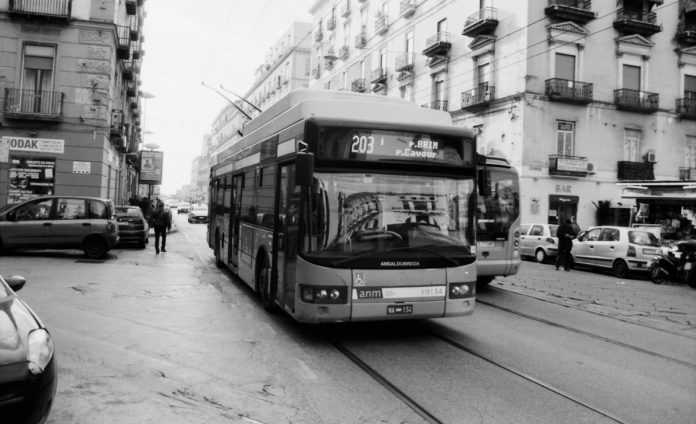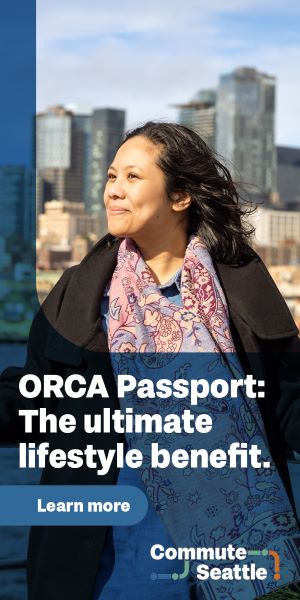Our conversation was drifting on to other topics, but I needed to clarify something.
“Hold up. Did you say that game was at eight o’ clock in the morning?”
“Yeah.”
For us swing shift folk, making it out to an event at that hour is akin to your average joe showing up to something with a three a.m. call time. He was referring to his daughter’s basketball game, which he enthusiastically supported by attending, despite the jarring conflict with his sleep schedule. I was impressed.
“You’re a good dad, man. I can respect how hard it is to get up for something at eight o’clock in the morning.”
It was another late night on my way home. I was happily exhausted, sprawled out in the front seats, as he navigated the bus through another intersection. “All I need’s my coffee, I’m good to go,” he replied.
“Right on. That means something, that you’re there. I’m sure she appreciates you being there. That means a lot to kids.”
“I try to flatter her with confidence.”
“Yeah.” I reflected further. It felt okay to share, out here on the empty night bus. I saw this operator about every week, and I once trained him on the 7. We’d gotten to know each other. I said, “I try to make sure I never break promises that I make to kids. You know?”
“Yeah. They don’t forget stuff like that.”
“They need people they can trust.”
“They don’t never forget stuff like that.” After a pause, he shared further himself. “I was state in high school. One of the top athletes in mah school.”
“Cool!”
“My dad never came to not one of my games.”
“You serious?”
“Not one.”
“I’m sorry. That’s not cool.”
“Yeah, I still got three shoe boxes of medals and pennants and stuff. Kinda hard for me to throw them away, you know?”
“I hear that.”
We were stopped at a long red light. He explained, “I had a half scholarship to USC. That was when my mom got colon cancer though. So I stayed.”
“I woulda done the exact same as you, man.”
“Oh yeah.”
“In a heartbeat. Easy decision to make.”
“I didn’t even question it.”
“She woulda done the same. She did. She gave up all her hopes and dreams for me.”
I reeled at the weight of his sentence. Wow. “That’s not easy to do,” I said.
“Yeah, well.”
“We can find ways to be happy.”
“Other pleasures in life.”
“For sure.”
He said it with the humble peace that comes from immense gratitude. He was aware of his mother’s sacrifice, and that for him, loyalty to those he loved would give him greater solace than achieving his aspirations in sports.
I’m a big subscriber to the notion that despite superficial shifts, the pillars around which human life are built remain largely constant. Everything changes, and everything stays the same.
A few of the superficial shifts have had larger ramifications, however, and the newfound multiplicity of choice is one of them. For centuries, life involved having too few options, and choosing the best available. The contemporary western world, for the first time, faces a more complicated present: the unprecedented issue of having too many options.
Before the economic boom following World War II, life in America revolved around surviving, as it did (and often does) in most places. The seismic attitudinal shifts between the generation which purchased homes after the war and the generation raised in those homes have mainly to do with the bewildering new concept of leisure time and how to fill it. The adults, many of them children of the Depression, saw time as a valuable resource for survival.
The new youngsters, on the other hand, growing up in comparative luxury and with no corresponding experience, found survival easy, and irrelevant to the forming of their identities. They focused instead on what prior generations never had time for–concepts like “lifestyle” (a coinage new to the period) and defining themselves with fascinations that come from having luxury capital, like clothing and music. The concept of the lifelong sacrifice, so painfully known to their forbears, seemed unnecessary and awful to them.
Is living in a world with a plethora of options better than being in one with a paucity of them? I think so, but I feel the challenges of both are so diametrically opposed that it’s impossible to imagine the issues of one having lived only in the other. The several generations prior to ours understood sacrifice at a level we will probably never know. We alive now struggle with what they wished for–a plethora of options–in ways they couldn’t have imagined. They would scoff now when our biggest problems are heartbreak and boredom, as we might chide them for defining themselves only by their careers, neither side understanding what the big deal is. We, today, wrestle with how to draw the outlines of our identities, surrounded as we are by avalanches of stimuli, drowning under heaps of suggested goals and desires, career and life paths, new catastrophes on the far corners of the globe. Modern life is the act of editing. What quantity of all this stimuli do you push aside, such that you can still see straight?
Marriage and family are the most obvious examples involving lifelong sacrifices. The suppression of certain aspects of self, forever, to make things work. That takes colossal guts, and I admire what my operator friend was saying above about his mother. That’s a level of commitment I know nothing about. It’s worthy of great respect, but concurrently, I believe with equal fervor that the danger of lifelong bitterness, resentment and depression is never greater than in such decisions. Is there a more unequivocal path to misery?
I sometimes wonder how my ancestors might behave, were they alive today. Sacrifices aren’t going anywhere. We all make them. There’s an excellent argument for sacrifice being the organizing principle behind all societies, and sometimes it remains the smartest thing to do, the one that benefits the most people.
And yet. What would they do now? Would they still stick it out in situations where they were obviously miserable? Or would they use with unparalleled enthusiasm the options we have today, sensibly pointing out the ridiculousness of giving up on dreams in a world where you don’t have to?
Our operator friend’s situation above has no easy solution, but what I admired about him was how fully he seemed to know his priorities. He didn’t have to sit there and think about what was more important for him in life. He knew and he acted, decisively, with the peace and confidence that comes from being true to yourself. My decisions may be like his, or they may just as easily not be, but I hope one day to have his clarity of vision, to navigate truthfully in this corner of the world, where options abound.
Nathan Vass is an artist, filmmaker, photographer, and author by day, and a Metro bus driver by night, where his community-building work has been showcased on TED, NPR, The Seattle Times, KING 5 and landed him a spot on Seattle Magazine’s 2018 list of the 35 Most Influential People in Seattle. He has shown in over forty photography shows is also the director of nine films, six of which have shown at festivals, and one of which premiered at Henry Art Gallery. His book, The Lines That Make Us, is a Seattle bestseller and 2019 WA State Book Awards finalist.




